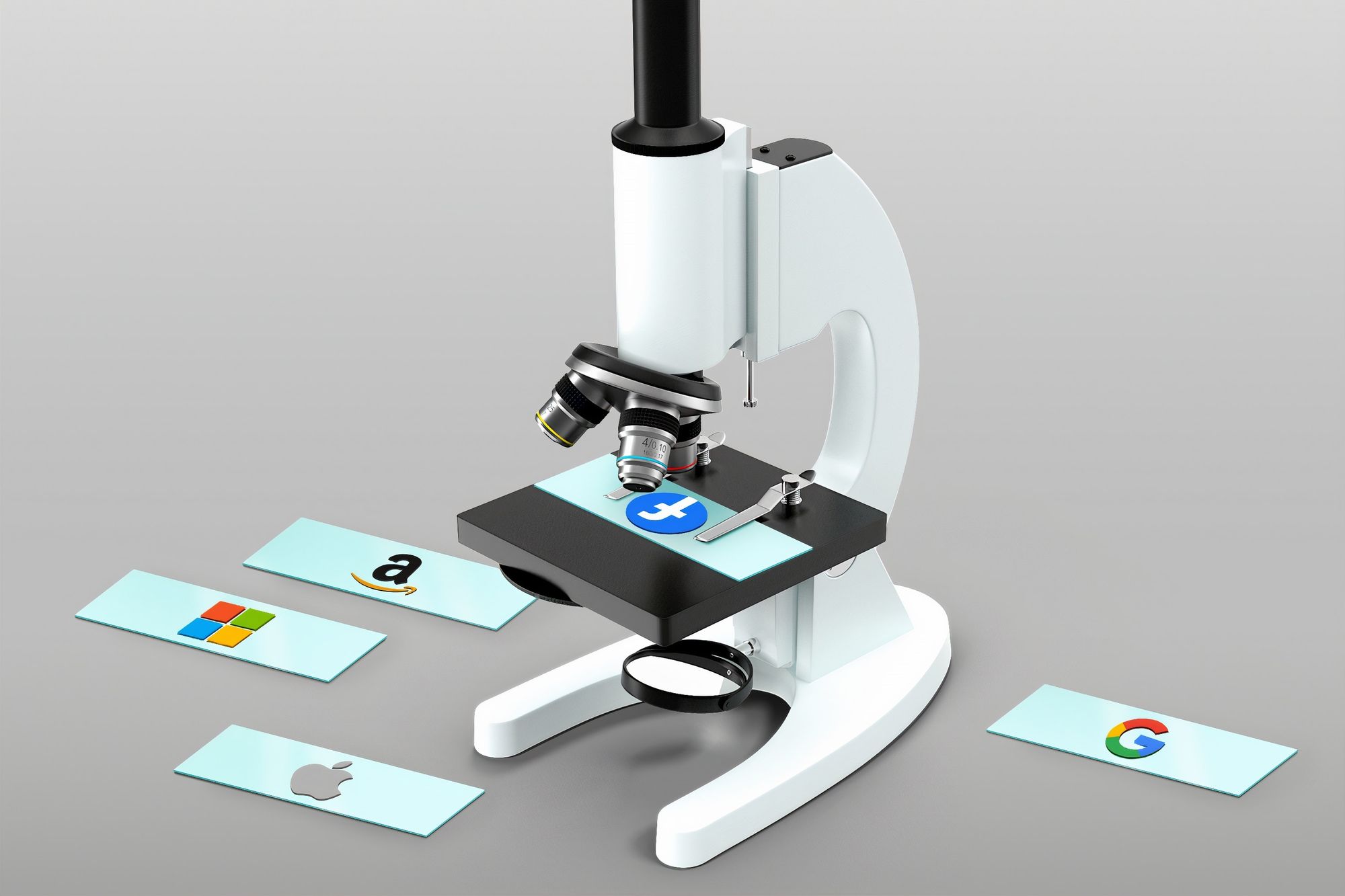No matter what happens in Georgia tomorrow, it's not the event that will decide the fate of the country. Too many things will remain too broken for too long, no matter the outcome.
If governments can still solve the worlds' problems in time before we destroy ourselves, you don't need to do much. Vote when you can. Stay informed. Donate to political groups. Protest as you deem appropriate.
But Government's ability to solve meaningful problems is looking less and less likely by the day. Not just the US government. All governments. In fact, the very concept of Government as we know it today seems to be inherently inadequate to the challenges most of us have seen coming for years.
So in between our infrequent civic duties, we should be working on a Plan B. This is my backup plan proposal, and I welcome all good-faith, forward-looking criticism and feedback.
While others see only despair in the world, builders, disrupters, and entrepreneurs should be taking advantage of this huge opportunity. We have a giant population of underserved 'customers' just waiting for problems to be fixed.
But the desire to save the world and the desire to make money need to be reunited. They are not mutually exclusive and the myth that they are is a self-fulfilling prophecy.
Get Rich While Saving the World
People are literally dying and suffering more and more each day, in completely avoidable ways. And there is no recourse for most of us, short of taking to the streets. There is nothing one can do today that one can be sure will help create the world one wants to live in tomorrow.

I'm not talking about non-profit, donation-fueled products. I'm talking about products that make plenty of money because they fix real problems for a lot of people. Just not an exploitative amount of money.
Traditionally we've thought about this type of product as the domain of governments. If you want to build an app to help people report and fix potholes, you're going to have to interface with the government at some point. Sending them your data, getting the data they have, etc. If you want to re-imagine healthcare, you have to take on the behemoth of insurance companies and bureaucracy, handle medical records regulation, etc.
To do differently, we assume, is to move further towards Idiocracy where we're relying on Facebook to fix our streets and Amazon to put out our fires. There's a better path.
The Coordination Revolution
I believe we are transitioning from the Information Age to the Coordination Revolution. Much like at the beginning of the Industrial Revolution, it's invisible to us how all these new technologies laying around will shape society, yet they persist in doing so despite our ignorance.

The Information Age connected the world, making humanity stronger and more resilient. But now we see the limitations of connection without coordination. We can't really fix big problems while we have corrupt proxies of government and media sitting between individuals and profoundly important decisions.
What would be best for 90% of people is blocked by a handful of people who are often not even elected representatives.
We don't have to wait for blockchain. The technologies we are all now familiar with are perfectly capable of stepping in to objectively mediate rational decisions on a nation-wide and global scale. These technologies can often bypass corrupt gatekeepers simply by leveraging open markets and consumer choice.
This new generation of products can enable common-sense decisions that reduce suffering and meaningfully improve people's lives with minimal cost. They can achieve the win-win scenarios left in the dumpster by corrupt actors.
There are plenty of solutions sitting around, but they are currently blocked easily by stoking fake, bad-faith opposition in media and government. If we can find a way to put them directly in people's hands, just like we do with any other website, app, or SaaS product, then we can circumvent those obstacles.
Building the Pyramids
Google, Facebook, and the other top tech companies are the Egyptian Pyramids of our time. Impressive feats of engineering and scale, achieved by exploiting a vast workforce to achieve narrow goals envisioned by a relatively few powerful people.

Like the pyramids, one wonders what we could have built instead with all that labor and effort. Most likely something much more democratic and enduring. Public infrastructure, a representative government ...
Also like the pyramids, these tech companies could not have been built if any significant portion of the wealth had been shared with the laborers. For if it had, the laborers would have been able to pull the economy and government in a direction that suited them. And they probably wouldn't have chosen to keep building the pyramids.
The Egyptian pyramid builders were not slaves, technically, but they were extremely poor. The analogy here is not to the Google and Facebook engineers as the builders, but the users of these platforms that provide the digital labor that makes all the money.
And what kept the pyramid builders from changing and improving their own circumstances could be boiled down to a lack of coordination. As can any undemocratic system. 20% of people are able to exert their will over 80% of people because the 80% cannot coordinate their actions. They cannot even share information enough to realize that 80% of people are unhappy with the ruling system. Everyone's experience is that they are the only one, or one of the few, that are unhappy with the status quo.
Right now, coordination comes at the expense of autocracy and centralized government. The story of humanity's next chapter will be circumventing these types of systems through coordination products. The 20% should never gain or retain power over the 80% again because it will always be possible for the majority to regulate power grabs through coordinated action.
This future is not a foregone conclusion, but I would argue that it's the only desirable future. To continue the swinging between the whims of one powerful minority and another is preventing any meaningful action being taken on improving the life of the average person in society, or ensuring the safety of the human species from any number of existential threats.
We will either have a successful Coordination Revolution, or a deepening dystopia where human weakness is amplified through technology until our eventual destruction.
The Secret Ingredient
The Deus Ex Machina of this story is sitting right under our noses. It's both obvious and counter to everything we've experienced in software for the past few decades.
Pay users for their contributions.

The successful products of the Coordination Revolution will fairly reward people for the value they contribute. We have hamstrung our progress towards any real utopia by relying on the exploitation of users to build only narrowly useful products.
The struggles of tech entrepreneurs come from trying to follow the same playbook of exploitation. We keep trying to trick people to build our pyramid by offering trivial social gimmicks – recommendation engines, likes, conspiracy rabbit holes, etc ... While ignoring the obvious collaborative opportunity that is unique to this moment in history.
Make something that gives real material value to your user, not just convenience.
Money is the obvious value to provide. If you want people to contribute content to your site, pay them. Take all the money that you were going to put into 'growth hacking' and 'marketing' and developing 'sticky' interactions, and just pay people to use your product, commensurate with the value they provide.
If you think you have a way to make money from user activity, why not share a portion with the users who your business relies on? If they don't provide enough value for you to pay them adequately and make a profit yourself, you don't have a viable business.
But wait, you say, Facebook and Google make users' life better. That's how they pay them. This is like saying that the Pharaohs feed their workers well so everyone wins.

Payment must account for the entire relationship with the user, not just the part they are aware of. Most people do not view the exchange of personal data with Google and Facebook as acceptable when they understand the full breadth and scope of how these companies monetize their activity. And when they understand the ways they are manipulated into spending more time on the platform than they consciously decide. Not to mention the externalities of eroded democracy and spread of misinformation by these platforms on a global scale.
If your users' participation is predicated on their ignorance or a lack of understanding, it's an exploitative business.
Spoiler Alert
This means that a traditional social network like Twitter or Facebook is not a viable business. We already knew that. They are clearly exploitative, and even so Twitter is unable to really make 'enough' money to make investors happy.
What this probably means is structuring businesses more like Co-ops, or profit-sharing businesses. These types of businesses can currently be perceived as running afoul of SEC rules, but maybe we can and should change those rules. It's becoming clear that we need to open up small investments and micro-ownership in safe ways so that everyone can share in the wealth that software is generating.
The key is structuring company metrics around user revenue. The company should only make a ton of money if the users also make a ton of money.
There aren't many examples to point to, and I acknowledge that. Kialo and Causes (formerly Countable) are two products that seem to be onto something in terms of coordination. But what they don't have is a sustainable business model. (Please send me any other/better examples you know of.)
Let's aim higher. Let's build successful businesses that materially improve customers lives – and not just with convenience or efficiency. If people are unemployed, build an app that gets them jobs. If people are starving, build an app that distributes food. And solve the problem in a way that gets you paid when they get jobs and food. If the government is corrupt in your area, build an app that gets more people involved and aware so that the power stealers are revealed and held accountable.
It won't be easy, but neither is building a product or business the old fashioned way. Let's at least take on challenges that, when solved, will get us closer to the world we want to live in.
Cover image by NASA
